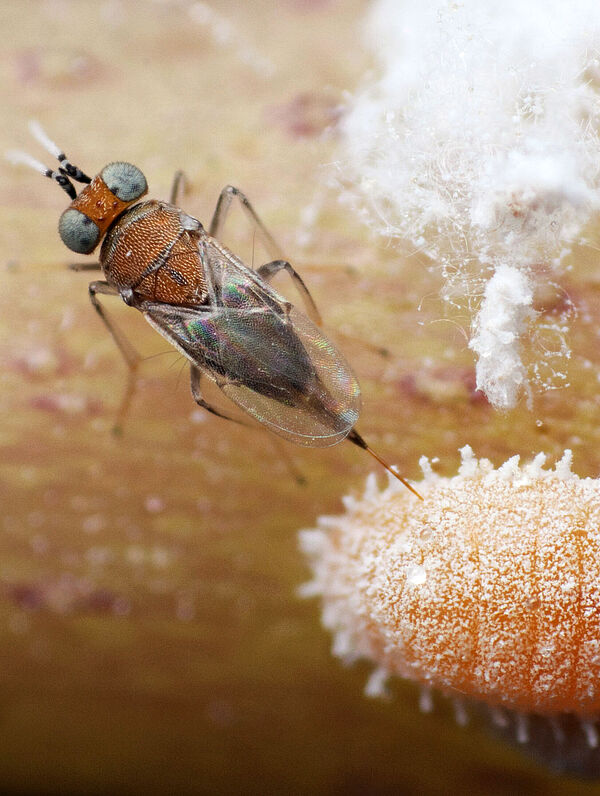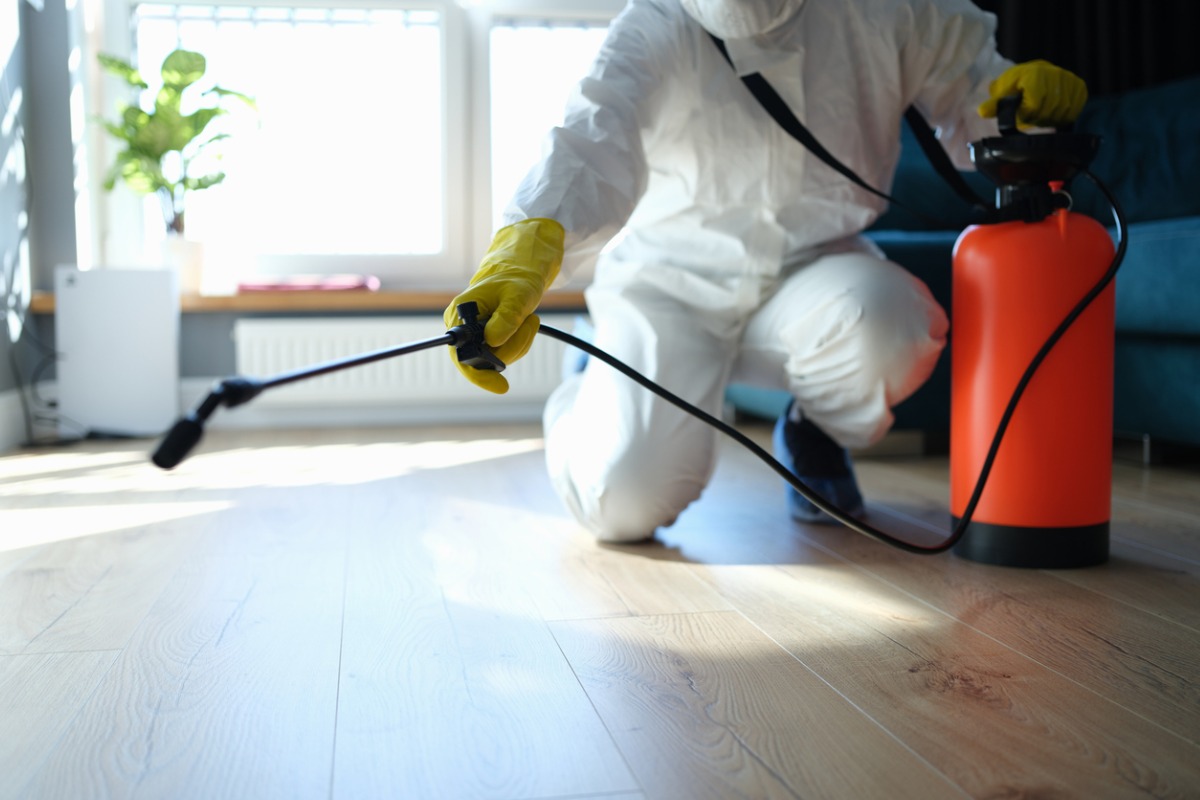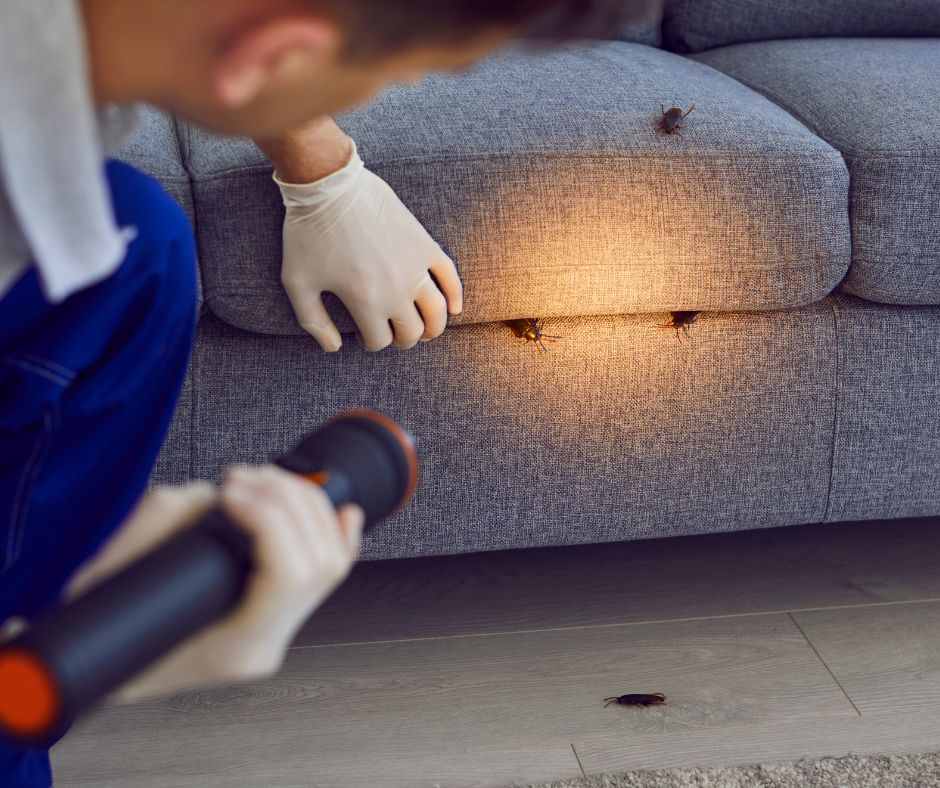Discover the Relevance of Parasite Control in Keeping a Healthy Environment and Treatment Strategies

The Role of Pests in Communities
Bugs, usually seen only as problems, play a complex function in ecosystems that is crucial for keeping ecological balance. They add substantially to various environmental processes, including pollination, nutrient cycling, and bug control. Several insect types, such as butterflies and bees, are important pollinators for a wide array of plants, which in turn sustains biodiversity and food manufacturing.
Furthermore, insects function as target for numerous killers, creating an essential link in food webs. This connection makes certain the survival of various types and aids regulate populations within ecosystems (Termite treatment Port Charlotte). Moreover, decomposer insects, such as specific beetles and fungis, are crucial in breaking down natural matter, thus enriching soil and facilitating vitamins and mineral recycling.
On the other hand, while bugs can be useful, their overpopulation or invasion right into non-native atmospheres might disrupt these environmental functions. This complexity emphasizes the value of comprehending pest characteristics, as effective parasite management techniques should think about both their eco-friendly duties and potential effect on human activities. Balancing pest existence while decreasing injury is crucial for maintaining the honesty of environments and making sure farming productivity.
Wellness Dangers Connected With Bugs
The presence of insects in numerous atmospheres extends past their environmental duties, as they likewise posture considerable health and wellness risks to humans and animals. Lots of pests, consisting of rats, parasites, and pests, are carriers of diseases that can have severe health effects. For example, rats are recognized to transmit hantavirus and leptospirosis, both of which can cause serious breathing and renal concerns, specifically.
Insects such as insects and ticks are notorious for spreading vector-borne conditions like malaria, dengue high temperature, and Lyme illness. These illnesses can result in high morbidity and death rates, specifically in prone populaces. Furthermore, pests like roaches and vermins can intensify allergic reactions and bronchial asthma, contributing to breathing issues in individuals, particularly those with pre-existing conditions.
Additionally, the presence of bugs can lead to psychological anxiety and pain, affecting total health. Contamination of food and surfaces by pest droppings and continues to be can lead to foodborne ailments, highlighting the relevance of maintaining sanitary conditions. Recognizing the health and wellness risks connected with insects is important in acknowledging the necessity of efficient insect monitoring techniques to safeguard animal and human health and wellness.

Benefits of Reliable Bug Control
Efficient parasite control is essential for preserving a healthy and balanced and risk-free atmosphere, as it consistently mitigates the various dangers related to pest invasions. One of the main advantages of reliable parasite administration is the reduction of carcinogen. Parasites such as rats, roaches, and mosquitoes are vectors for conditions that can impact both pets and people. By controlling these populations, the possibility of illness transmission is significantly decreased.
Additionally, reliable parasite control safeguards property and structures from damages. Several parasites, like termites and woodworker ants, can cause comprehensive architectural damages that may call for costly repairs. By proactively handling these invasions, businesses and home owners can secure their investments.
An additional considerable benefit is the improvement of overall top quality of life. A pest-free setting adds to psychological health and lowers tension connected with invasions. Effective insect control fosters a safer environment for pets and youngsters, guaranteeing that homes remain havens what is pest control services free from damaging chemicals and disease-causing organisms.
Common Parasite Control Techniques

In the realm of pest monitoring, different techniques are employed to battle invasions properly. These techniques can be extensively categorized into 3 major methods: social, mechanical, and chemical controls.
Social control involves customizing methods to reduce pest facility, survival, and reproduction. This might include plant turning, proper cleanliness, and habitat manipulation, check these guys out which jointly produce an atmosphere less for pest spreading.
Mechanical control uses physical techniques to get rid of bugs (Termite treatment Port Charlotte). Methods such as vacuums, barriers, and traps are frequently utilized to directly remove insects from an area. This technique is particularly reliable for handling rats and insects without using dangerous chemicals
Chemical control entails the application of pesticides to handle pests. These substances can be classified right into herbicides, fungicides, and insecticides, each targeting details sorts of bugs. It is crucial to use these chemicals judiciously, adhering to safety guidelines and policies to lessen potential harm to non-target types and the atmosphere.
Each parasite control technique has its advantages and restrictions, and commonly, an incorporated strategy combining several methods yields the most effective outcomes in keeping a pest-free environment.
Sustainable Parasite Management Practices
Sustainable bug management methods encompass a variety of approaches created to decrease environmental impact while properly regulating insect populations. These methods prioritize making use of ecologically friendly methods over chemical pesticides, thereby decreasing the risk of harm to non-target varieties, consisting of advantageous insects, wild animals, and human beings.
Integrated Bug Administration (IPM) is a foundation of sustainable practices, incorporating organic, cultural, mechanical, and chemical tactics to handle bugs. For example, organic control entails introducing all-natural predators or parasites to reduce parasite populaces. Social methods, such as plant turning and polyculture, disrupt pest life process and enhance ecological community resilience.
Mechanical methods, such as obstacles or traps, can properly prevent insect accessibility without chemical treatment. Additionally, keeping healthy ecosystems via proper dirt monitoring, plant wellness, and biodiversity can site normally mitigate insect problems.
Education and learning and awareness are important components, encouraging communities and individuals to identify pest risks early and execute precautionary actions. Termite treatment Port Charlotte. By cultivating a holistic technique that balances pest control with eco-friendly honesty, lasting pest administration practices not only protect plants and frameworks however additionally add to a much healthier environment for future generations
Conclusion

Recognizing the health and wellness risks associated with pests is vital in acknowledging the need of effective insect administration techniques to safeguard human and animal wellness.
Efficient pest control is crucial for preserving a risk-free and healthy and balanced atmosphere, as it consistently alleviates the various threats connected with pest problems.Integrated Insect Monitoring (IPM) is a foundation of sustainable techniques, integrating organic, cultural, mechanical, and chemical methods to manage parasites. By comprehending the role of parasites, acknowledging associated health and wellness risks, and utilizing varied treatment techniques, a sustainable strategy to pest administration can be attained. Integrated Bug Management (IPM) highlights an alternative methodology that alleviates harm to beneficial organisms while effectively managing pest populations.